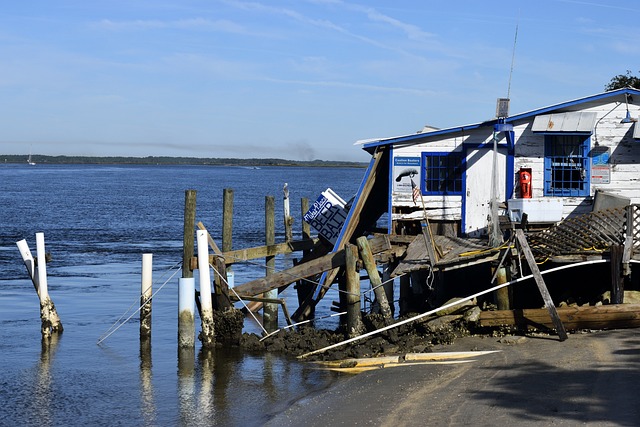Harvard study highlights climate risks facing over 18 million rental units in the US.
- February 7, 2024
- Posted by: Sinead Sprigg
- Category: Environmental, Reports, Research Papers, Water Issues, North America

A recent study conducted by Harvard’s Joint Center for Housing Studies has revealed that a significant portion of rental units in the United States are facing exposure to climate-related risks. The study indicates that approximately 41% of occupied rental units in the country are situated in areas prone to severe climate-related threats.
According to the report, this amounts to more than 18.2 million rental units that are at risk of substantial damage from various natural disasters such as hurricanes, wildfires, floods, earthquakes, and similar hazards. It’s worth noting that this figure represents between 35% to 40% of multifamily buildings and 45% of single-family rentals nationwide.
The study highlights that newer rental units, particularly those constructed in the 21st century, are significantly more vulnerable to weather and climate-related hazards.
Nearly half of the rental units built in 2000 or later are located in areas susceptible to substantial losses, which is double the proportion of units built before 1940.
However, the report also underscores that older rental properties are not immune to environmental risks, as they often lack adequate infrastructure and are in need of energy upgrades to cope with rising temperatures and changing weather patterns.
To mitigate future threats, the report emphasizes the importance of investing in pre-disaster mitigation and adaptation strategies. Such investments are crucial for safeguarding the dwindling stock of rental housing, reducing the likelihood of evictions, and mitigating rent increases that typically follow climate-related disasters.
The study’s findings come amidst growing concerns over the financial implications of climate change-related events. Last year alone, 28 climate-related events incurred an estimated cost of $92.9 billion, according to a report from NOAA National Centers for Environmental Information. Consequently, insurance costs for both renters and homeowners are on the rise, with insurers retreating from high-risk communities.
Moreover, experts warn that climate-related risks could potentially lead to a decline in home values, with approximately 20% of the housing market at risk of devaluation due to flood damage exposure.
Despite these risks, the study notes that a significant number of homebuyers are still considering climate change factors when purchasing properties. Affordability concerns continue to drive many individuals to relocate to at-risk regions despite the potential dangers posed by climate-related events.
